There’s no consensus on the exact number of covenants between God and humanity. However, there are five foundational covenants that God makes with Noah, Abraham, Moses, David, and the new covenant through Jesus.
The five foundational convents are crucial for understanding the story of the Bible and God’s redemptive plan:
- the Noahic Covenant in Genesis,
- the Abrahamic Covenant in Genesis,
- The Mosaic Covenant in Exodus,
- the Davidic Covenant in 2nd Samuel,
5. and the New Covenant in the New Testament.
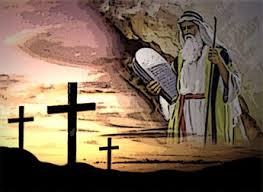
God’s covenant (1) with Noah was a commitment to maintain the inherited relationship between the Creator and the creation; his relationship with the natural order – implicit in the act of creation – whereby he promised never again to destroy the earth with a flood.
The covenant (2) between God and Jews is the basis for the idea of the Jews as the chosen people. The first covenant was between God and Abraham. Jewish men are circumcised as a symbol of this covenant. You shall be circumcised in the flesh of your foreskins, and it shall be a sign of the covenant between me and you.
God had chosen Abram to be the keeper of His covenant with men. Abram was to become the father of all nations; his descendants would number the stars in the sky. The custodians of this covenant would follow the bloodline of Abram and Sarah to their son, Isaac, grandson, Jacob, and future generations.
When Moses and his people reached Mount Sinai on the way to the Promised Land, God spoke to Moses. It was there that (3) God made a covenant with Moses and the Jewish people that renewed the one He had made with Abraham. At the same time, God gave the Jews the Ten Commandments – a set of rules by which they should live.
The covenant that God gave at Mount Sinai reinforced the covenant that God had given to Abraham and told the Jews what they would have to do on their side of the covenant. God again promised to stay with the Jews and never to abandon them, because they were his chosen people. covenant.
The Davidic Covenant (4) is the covenant where God promises a descendant of David will reign on the throne over the people of God. It is a continuation of the earlier covenants in that it promises a Davidic king as the figure through whom God would secure the promises of land, descendants, and blessing.
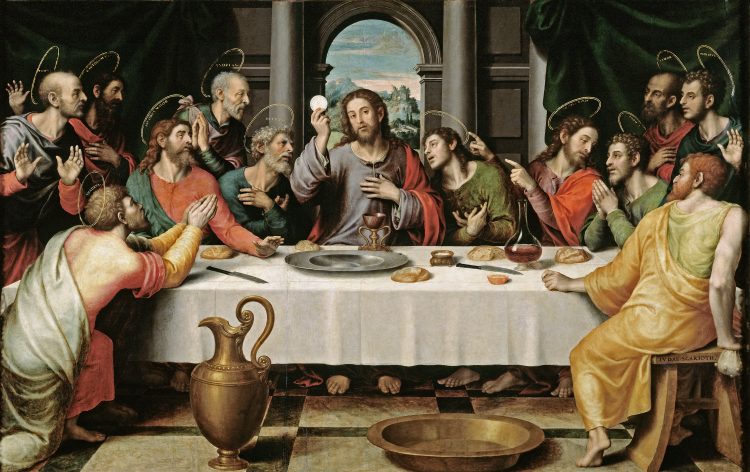
God promised a new covenant (5). Generally, Christians believe that the promised New Covenant was instituted at the Last Supper as a part of the Eucharist, which, in the Gospel of John, includes the New Commandment.
The Covenant in the Book of 2nd Samuel
The Book of 2nd Samuel shows us the virtue of humility, the destructiveness of pride, and the faithfulness of God’s promise. We read of David’s successes and failures, and we read of God’s promise for a future king at the beginning and end of the story.
2 Samuel 7 is the chapter in which God makes an eternal, unconditional covenant with David, referred to as the Davidic covenant.
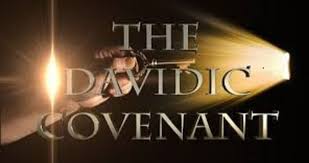
In 2 Samuel 7, David offers to build a house for the Lord. The Lord, through Nathan, says He has not asked David to do so. The Lord will establish David’s house and kingdom forever. David offers a prayer of thanksgiving.
Later, one of David’s sons, King Solomon, builds the temple in Jerusalem.
Blessings are promised to the family and posterity of David. These promises relate to Solomon, David’s immediate successor, and the royal line of Judah. But they also relate to Christ, who is often called David and the Son of David.
Jesus is the Everlasting King
2 Samuel 7:13 foretells Jesus’ coming as King. And He is still reigning. And He will always reign as King. Throughout the Old Testament, we see this promise of a royal line, and God’s provision for His people through a coming King. And the Advent season reminds us that Jesus is that King.
2 Samuel 7:14 details the relationship that God will have with this coming son of David. God says that He will be the Father. This promise is being made to David, but it is the new covenant church that embraces the idea of God being our Father.
2 Samuel 7 8-16 has a promise that a Son of David, referencing the Messiah, will come from David’s Lineage and that He will establish a kingdom and rule forever. These promises from God to David are unconditional and do not place any conditions of obedience upon its fulfillment.
Two Houses
2nd Samuel 7:1-16 (and 1 Chronicle 17:1-14) is about the establishment of two houses:
(1) the “house” (i.e., dynasty) of David, whose foundations are Yhwh’s promises and fidelity,
(2) and the “house” (i.e., temple) of Yhwh, which would eventually be built by David’s son, Solomon.
The family of David did rule over Israel for more than four centuries but was eventually removed because of evil added upon evil. Yet out of the “stump” of Jesse, God raised a new branch that will reign forever and ever (Isaiah 11:1-2).
2nd Samuel 7:16 reminds us of God’s promises. It’s about all time and all people throughout all time forever. What God is doing here will last forever. He’s making a promise that would last forever. That means that promise is still in place today, and 10 billion years from now, that promise will still be in place.
Then, 2 Samuel 7:18-29, follows David’s prayer, in which he expresses the sense he had of the greatness and goodness of God. And David prays about his own unworthiness to receive such favors from Him. David returns thanks for the promises God made and prays for their performance.
In Summary
There’s no consensus on the exact number of covenants between God and humanity. However, one of the foundational covenants that God makes is the covenant with David. It establishes the new covenant through Jesus.
The Everlasting King in 2 Samuel 7:13 foretells Jesus’ coming as King. And Jesus is still reigning. And He will always reign as King. Throughout the Old Testament, we read this promise of a royal line, and God’s provision for His people through a coming King. And the Advent season reminds us that Jesus is that King.
God doesn’t make demands on us as if He is dependent on the things we can give Him or do for Him. His Lordship is one of invitation and grace. He lets us participate in His work and provides us with all that we need to serve Him, and more besides.
2nd Samuel 7:16 reminds us of God’s promises. It’s about all time and all people throughout all time forever. God is making a promise that will last forever.
______________Affiliate link – SHOP: _______________
_This ad is for my favorite version of The Bible _
_____but click on it to go to the whole store______

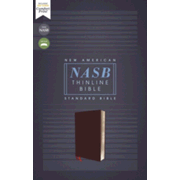
NASB Comfort Print Thinline Bible, Red Letter Edition–bonded leather, burgundy (click here)
By Zondervan
The beloved 1995 Edition of the New American Standard Bible is now easier to read with Zondervan’s exclusive NASB Comfort Print® typeface. This edition of the NASB Thinline Bibles is available in a variety of sophisticated designs in a portable, easy-to-read format.
- The full text of the New American Standard Bible, 1995 Edition
- Exquisite, durable covers
- Less than one inch thick
- Double-column format
- Presentation page
- Two satin ribbon markers
- Words of Christ in red
- Exclusive Zondervan NASB Comfort Print 9 point type
Features:
____________________________________________
In conclusion, consider what the Daily Bread email message sent on 4/10/2023 says,
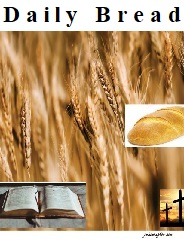
2 Samuel 7:16 – Your house and your kingdom shall endure before Me forever; your throne shall be established forever. (NASB)
2nd Samuel 7:16 reminds us of God’s promise to David, made about 1005 B.C. But the promise of Christ coming is about all time and all people throughout all time, forever. That means the promise is still in place today, and 10 billion years from now, that promise will still be in place.
You Can Receive The Daily Bread, for FREE.
To receive the Daily Bread email messages, free on Mon., Wed., and Fri., in your email inbox, just fill in the form below or send an email, and ask to be added, to jmikeh@jmhowington.com
